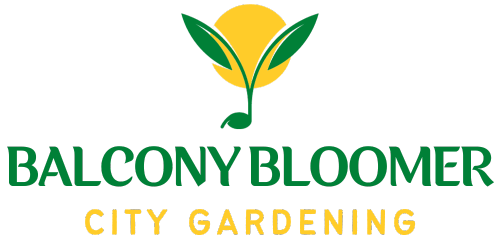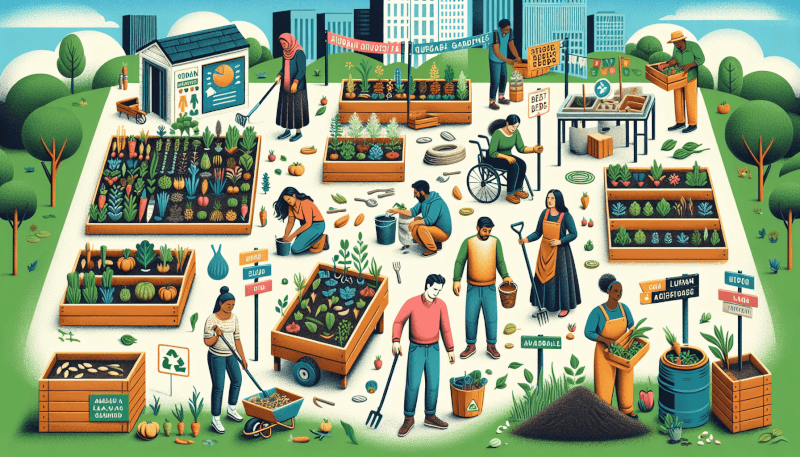Imagine a vibrant city filled with bustling streets and towering skyscrapers. Now picture nestled amongst these concrete giants, a thriving urban garden bursting with life. This article explores the importance of promoting diversity and inclusivity within these urban green spaces. By creating environments that welcome individuals from all walks of life, we can cultivate a sense of community, foster connections, and celebrate the beauty of nature in its many forms. Join us as we uncover the ways in which urban gardens can become havens of unity and growth for everyone to enjoy.
Importance of Diversity and Inclusivity in Urban Garden Spaces
Urban garden spaces have the incredible potential to bring together people from diverse backgrounds, fostering a sense of community and connection. By creating a welcoming and inclusive environment, we can ensure that everyone feels valued and included in these spaces. The benefits of diversity and inclusivity in urban garden spaces are numerous, not only for the individuals involved but for the community as a whole.
Creating an Inclusive Environment
In order to promote diversity and inclusivity in urban garden spaces, it is crucial to create an environment that is welcoming to all. This can be achieved by implementing inclusive design principles that consider the needs of individuals with different abilities, cultural backgrounds, and language proficiencies.
Benefits of Diverse Urban Garden Spaces
Diverse urban garden spaces offer a range of benefits that extend beyond just gardening. These spaces provide opportunities for individuals to learn from one another, exchange ideas, and gain a deeper understanding and appreciation for different cultures. Additionally, diverse gardens can serve as educational resources, promoting sustainability and ecological awareness within the community.
Designing for Accessibility
To ensure that urban garden spaces are accessible to individuals with disabilities, it is important to implement various design elements that address their specific needs. This includes providing wheelchair-accessible paths throughout the garden, installing raised beds for easy reach, and incorporating sensory gardens for visually impaired individuals.

Providing Wheelchair-Accessible Paths
By providing wheelchair-accessible paths, individuals with mobility impairments can easily navigate through the garden spaces. These paths should be wide enough to accommodate wheelchairs, be free of obstacles, and have a smooth surface to prevent any unnecessary barriers.
Installing Raised Beds for Easy Reach
Raised beds are an excellent addition to urban garden spaces as they allow individuals with mobility limitations to comfortably participate in gardening activities. By raising the planting areas, individuals can easily reach the plants without having to bend or kneel, making gardening a more enjoyable and accessible experience for everyone.
Including Sensory Gardens for Visually Impaired Individuals
Incorporating sensory gardens is another way to create a more inclusive environment in urban garden spaces. By including plants that stimulate the senses, such as aromatic herbs, textured foliage, and brightly colored flowers, visually impaired individuals can still enjoy the beauty and benefits of gardening through their senses of touch and smell.
Incorporating Cultural Diversity
Celebrating and embracing different cultural practices and traditions is an essential aspect of promoting diversity and inclusivity in urban garden spaces. By recognizing and honoring the cultural diversity within the community, urban gardens serve as spaces for cultural exchange and understanding.

Celebrating Different Cultural Practices and Traditions
Urban gardens can host events and activities that showcase and celebrate the different cultural practices and traditions present in the community. This can include cultural festivals, cooking demonstrations, and storytelling sessions where individuals can share their unique cultural heritage with one another.
Growing a Diverse Range of Crops and Plants
Another effective way to incorporate cultural diversity in urban garden spaces is by growing a diverse range of crops and plants. This not only adds variety to the garden but also reflects the diverse culinary traditions of the community. By growing culturally significant crops and plants, urban gardens become living representations of the different cultures present in the area.
Engaging the Local Community
To truly promote diversity and inclusivity in urban garden spaces, it is vital to engage the local community and create opportunities for collaboration and active participation. This can be achieved through organizing community gardening events and collaborating with diverse community organizations.
Organizing Community Gardening Events
Community gardening events provide an opportunity for individuals from all walks of life to come together and contribute to the maintenance and development of the garden spaces. These events can range from group planting sessions to workshops on gardening techniques, allowing participants to learn from one another while fostering a sense of unity and shared purpose.
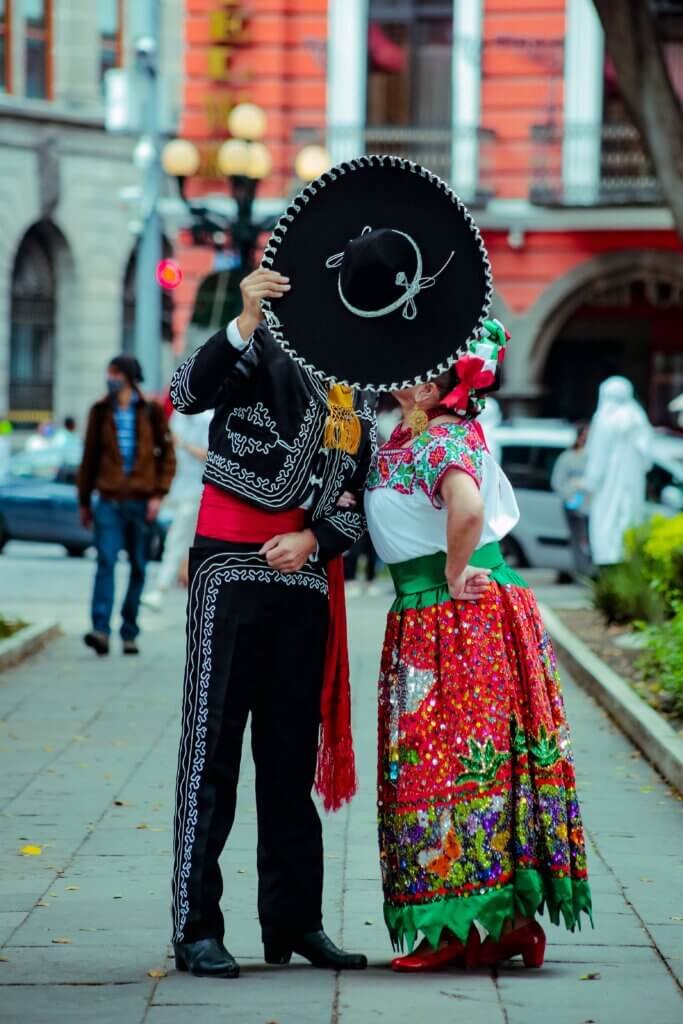
Collaborating with Diverse Community Organizations
By collaborating with diverse community organizations, urban garden spaces can connect with different groups within the community and promote a sense of inclusivity. This can involve partnering with cultural associations, social welfare organizations, or schools to host joint events or share resources. Such collaborations not only enrich the garden spaces but also strengthen the social fabric of the community.
Educating and Empowering
In order to promote diversity and inclusivity in urban garden spaces, it is important to provide educational opportunities that empower individuals to actively participate in gardening and become advocates for diversity and inclusion. This can be achieved through gardening workshops, training programs, and the provision of educational resources.
Offering Gardening Workshops and Training Programs
Gardening workshops and training programs offer valuable learning opportunities for individuals, regardless of their previous gardening experience or cultural background. By providing access to knowledge and skills, urban garden spaces can empower individuals to confidently engage in gardening activities, fostering a sense of belonging and self-sufficiency.
Providing Educational Resources on Diversity and Inclusivity in Gardening
In addition to practical gardening skills, it is important to provide educational resources and information on the importance of diversity and inclusivity in gardening. This can include materials that highlight the ecological benefits of diverse gardens, the cultural significance of different plants, and tips on how to create inclusive and accessible garden spaces.
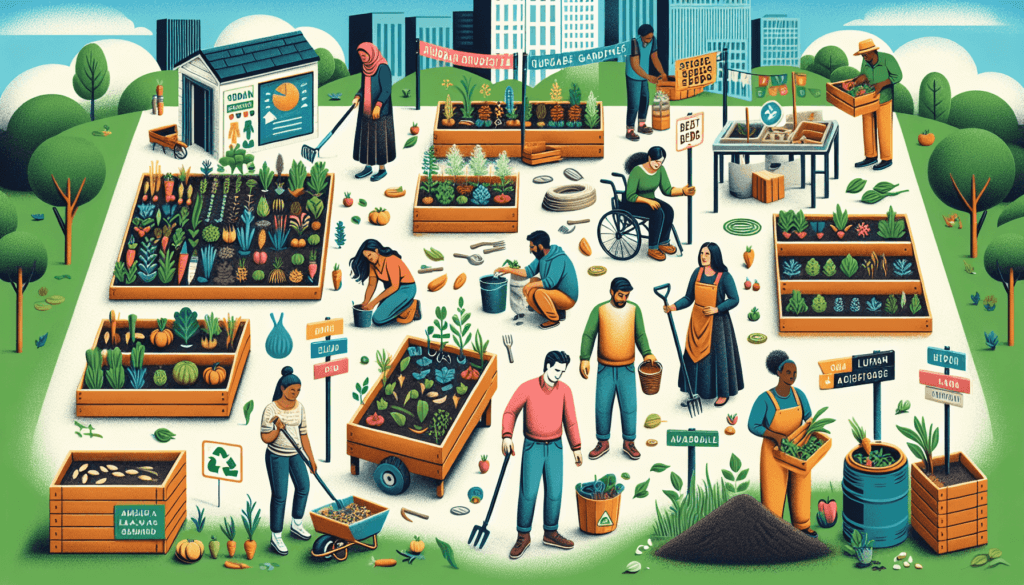
Addressing Language Barriers
To ensure that urban garden spaces are truly inclusive, it is important to address language barriers that may exist within the community. By translating garden signage and materials and offering multilingual gardening workshops, individuals with limited English proficiency can fully engage and participate in the gardening process.
Translating Garden Signage and Materials
Translating garden signage and materials into different languages allows individuals with diverse linguistic backgrounds to understand and navigate the garden spaces effectively. Including translated information about the plants, their care, and the garden’s rules and guidelines helps eliminate language barriers and creates a more inclusive environment.
Offering Multilingual Gardening Workshops
By offering multilingual gardening workshops, urban garden spaces can ensure that individuals with different language proficiencies have equal access to educational opportunities. Providing interpreters or conducting workshops in multiple languages allows everyone in the community to engage in gardening activities and learn from one another.
Creating Safe Spaces
Creating safe spaces is essential to promoting diversity and inclusivity in urban garden spaces. This involves implementing anti-discrimination policies, ensuring accessible facilities, and providing gender-neutral amenities.
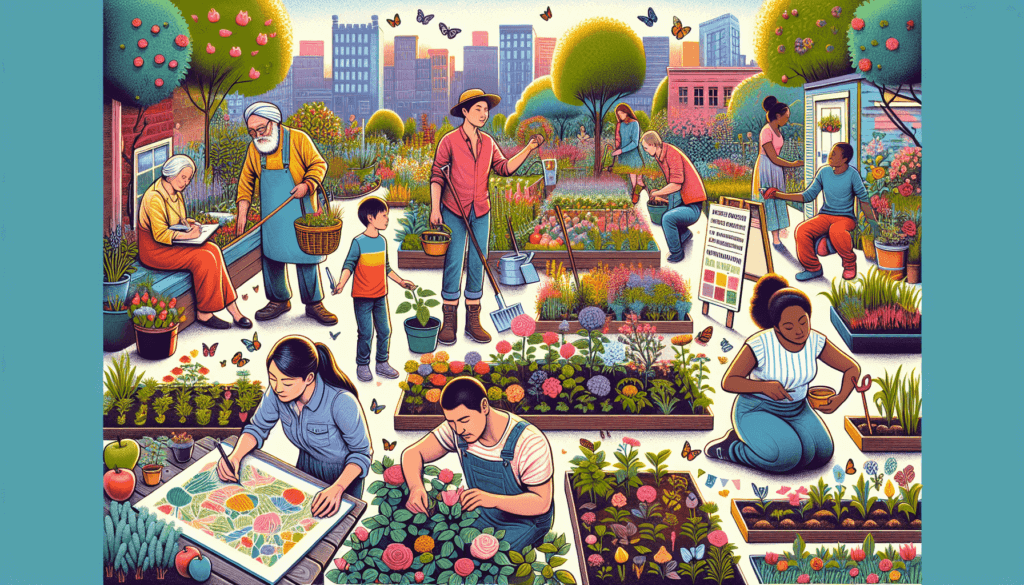
Implementing Anti-Discrimination Policies
In order to create a safe and inclusive environment, it is important to implement clear anti-discrimination policies within urban garden spaces. These policies should address any form of discrimination based on race, ethnicity, gender, sexual orientation, or socioeconomic status. By establishing guidelines that promote respect and inclusivity, urban gardens can foster an environment where everyone feels valued and accepted.
Ensuring Accessible and Gender-Neutral Facilities
To promote inclusivity, urban garden spaces should provide accessible and gender-neutral facilities. This can include accessible restrooms, ramps, and wheelchair-friendly pathways. By ensuring that everyone can easily navigate and use the facilities, urban gardens become welcoming spaces for individuals of all genders and abilities.
Promoting Sustainability
Promoting sustainability in urban garden spaces is another key aspect of creating inclusive and environmentally responsible communities. By using eco-friendly gardening practices and encouraging composting and waste reduction, urban gardens can lead by example and inspire others to adopt more sustainable lifestyle choices.
Using Eco-Friendly Gardening Practices
Adopting eco-friendly gardening practices, such as organic gardening techniques and natural pest control methods, reduces the environmental impact of urban gardens. By minimizing the use of harmful chemicals and embracing sustainable practices, these spaces contribute to biodiversity conservation and promote a healthier and more resilient ecosystem.
Encouraging Composting and Waste Reduction
Urban gardens provide an excellent opportunity to educate the community about the importance of composting and waste reduction. By teaching individuals how to compost their kitchen scraps and garden waste, urban garden spaces can help reduce the amount of organic waste that ends up in landfills. This not only benefits the environment but also provides nutrient-rich compost for the garden beds, creating a closed-loop system of sustainability.
Collaborating with Schools and Youth Programs
Engaging with local schools and youth programs is an effective way to promote diversity and inclusivity within urban garden spaces. By partnering with educational institutions and involving young individuals in garden projects, these spaces become platforms for learning, empowerment, and intergenerational connection.
Partnering with Local Schools for Garden Projects
Partnering with local schools allows urban garden spaces to play a meaningful role in the education and development of young individuals. By involving students in garden projects, such as planting and harvesting, they gain valuable hands-on experience and learn about the importance of sustainable food production, biodiversity, and cultural diversity.
Involving Youth in Garden Maintenance and Activities
Involving youth in the maintenance and activities of urban garden spaces not only teaches them valuable skills but also fosters a sense of responsibility and ownership in the community. By engaging young individuals in gardening tasks, such as weeding, watering, and seed saving, they become active participants in the nurturing and growth of the garden, forging a deeper connection with nature and their community.
Measuring the Impact
In order to evaluate the effectiveness of diversity and inclusivity initiatives in urban garden spaces, it is crucial to collect data and measure their social and environmental impact. This allows for continuous improvement and the identification of areas that might require further attention or development.
Collecting Data on Diversity and Inclusivity Initiatives
Collecting data on diversity and inclusivity initiatives provides valuable insights into the impact of these efforts within urban garden spaces. This can include data on the diversity of garden users, the number of individuals participating in workshops and events, and feedback from the community. By systematically collecting and analyzing this data, urban garden spaces can better understand their strengths and areas for improvement.
Evaluating the Social and Environmental Impact of Urban Garden Spaces
To ensure the long-term success and relevance of diversity and inclusivity initiatives, it is important to evaluate their social and environmental impact. This can involve assessing factors such as community engagement, increased cultural awareness, and the ecological benefits of urban gardens. By understanding the tangible and intangible impacts of these initiatives, urban garden spaces can continue to evolve and adapt to meet the needs of their diverse communities.
In conclusion, promoting diversity and inclusivity in urban garden spaces is not just about creating a beautiful garden, but creating a space that celebrates and embraces the diverse cultures, abilities, and backgrounds of the community. By designing for accessibility, engaging the local community, educating and empowering individuals, addressing language barriers, creating safe spaces, promoting sustainability, collaborating with schools and youth programs, and measuring the impact of diversity and inclusivity initiatives, urban garden spaces can truly become transformative and exemplary community assets. Let’s work together to ensure that our urban garden spaces are welcoming, inclusive, and reflective of the diverse communities they serve.
